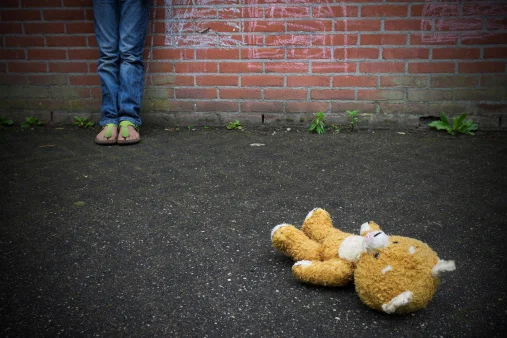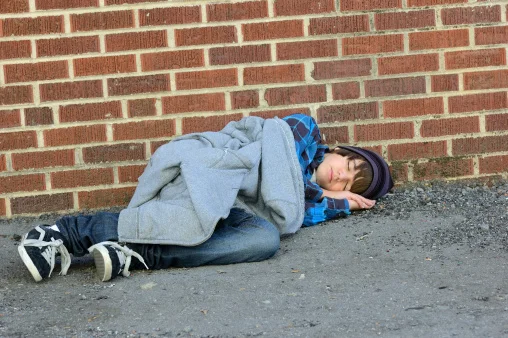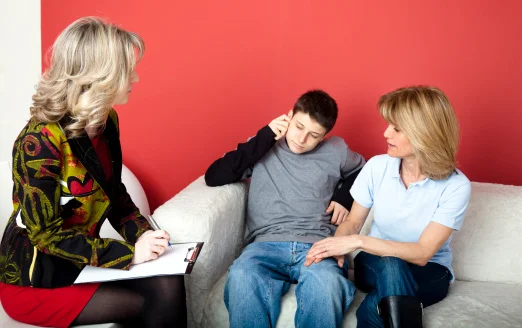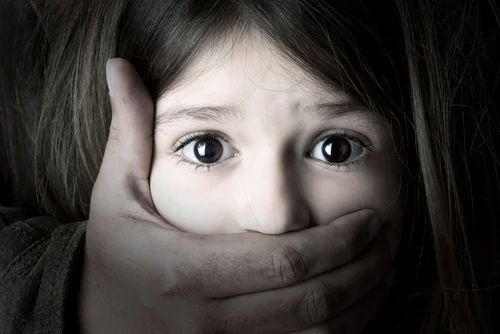+1 845 259 2974 (11 a.m to 7 p.m CST)
Child Abuse Therapy – How Should Parents Deal?

Child abuse can leave deep emotional scars on a teenager. The effects of abuse often last well into adulthood if left untreated. Parents, who naturally want the best for their children, may feel helpless in the face of their teen's trauma. However, with the right approach and support, recovery is possible. Therapy plays a key role in helping teens heal, and parents can also contribute significantly to their child's progress.
Let’s see how therapy can assist in your teen’s recovery and what steps you, as a parent, can take to help them heal more effectively.
Understanding the Impact of Child Abuse Trauma
Child abuse can take several forms—physical, emotional, and sexual. Regardless of the type, it can have long-lasting impacts on a teen’s mental, emotional, and social well-being. Teens who have experienced abuse often deal with anxiety, depression, trouble trusting others, and difficulty forming healthy relationships. Many may also suffer from nightmares, flashbacks, or trouble focusing on daily activities, including schoolwork.
As a parent, you may notice changes in your teen’s behavior that indicate they are struggling. This could include increased isolation, irritability, or emotional outbursts. Some teens may try to hide their emotions, becoming distant or overly focused on school, sports, or hobbies to escape their inner turmoil. Being aware of these signs is essential, as early intervention can significantly improve the chances of recovery.
The Role of Therapy in Healing
Therapy is an essential part of recovery for teens who have experienced child abuse. It offers a structured and safe environment for them to process their emotions and trauma. Different types of therapy are available, and finding the one that best suits your teen's needs can make a significant difference in their healing journey.
Cognitive Behavioral Therapy (CBT):
CBT is widely used for trauma recovery. It helps teens identify and change harmful thought patterns that stem from their experiences of abuse. CBT teaches practical coping skills for dealing with stress, anxiety, and triggers that might arise in everyday situations. Through CBT, teens can gradually reduce negative thinking and replace it with healthier, more productive thoughts.
Eye Movement Desensitization and Reprocessing (EMDR):
EMDR is a therapy specifically designed to help individuals process traumatic memories. In this type of therapy, your teen will be asked to recall traumatic memories while following the therapist's hand movements, sounds, or lights. Over time, the traumatic memories become less intense, allowing the teen to think about them without the overwhelming emotional distress they once caused.
Play Therapy:
Teens, especially younger ones, may struggle to express their feelings in words. Play therapy offers an alternative by allowing them to express their emotions through activities, games, and role-playing. In this setting, the therapist can observe how the teen interacts with the play materials and use these observations to help them better understand and process their trauma.
Family Therapy:
In many cases, trauma impacts the whole family, not just the individual teen. Family therapy helps everyone involved learn how to communicate better and support the teen in their recovery. By working together, families can rebuild trust, improve communication, and strengthen relationships, making the recovery process smoother.
Trauma-Focused Cognitive Behavioral Therapy (TF-CBT):
TF-CBT is a specialized form of CBT tailored to help children and adolescents who have experienced significant trauma. It combines traditional CBT methods with trauma-focused approaches. TF-CBT involves both the teen and their family, teaching everyone how to manage and overcome the emotional challenges related to the abuse.
When choosing a therapist, ensure that they specialize in child and adolescent trauma. The relationship between the therapist and your teen is crucial. If your teen doesn't feel comfortable or connected to the therapist, they may not open up fully. Be patient, as finding the right fit may take a few tries, but it’s well worth the effort in the long run.
Supporting Your Teen at Home
While therapy is critical, your teen also needs support outside of the therapy room. What you do at home can play a huge role in their recovery.
- Create a Safe Space:
Your home should be a place where your teen feels secure. Avoid pressuring them to talk about their feelings if they aren’t ready, but let them know you are always available to listen. This feeling of safety and unconditional love can significantly ease the healing process.
- Encourage Open Communication:
Let your teen know that they can come to you whenever they feel comfortable. Instead of prying, let them set the pace. Encourage them to share what they’re going through, but don’t rush or force it. Just knowing that you're there and ready to listen can be a huge comfort.
- Help Them Manage Emotions:
Teens recovering from trauma may experience overwhelming emotions. Help them manage these feelings by teaching simple techniques like deep breathing, meditation, or journaling. Engaging in hobbies, such as painting, music, or sports, can also help your teen channel their emotions in a positive way.
- Be Patient:
Trauma recovery takes time. It’s not a linear process, and there will be ups and downs. Avoid pushing for immediate results. Celebrate small victories, such as when your teen opens up or handles a difficult situation well. These moments are important steps in the healing process.
Building a Support System
No one should go through trauma recovery alone. Building a strong support system around your teen is essential.
- Family Involvement:
Family plays a vital role in your teen's recovery. Participate in family therapy sessions and be open to learning how to best support your teen emotionally. Strengthening family ties can provide a strong foundation for your teen to lean on during difficult times.
- Support Groups:
Support groups can connect your teen with others who have gone through similar experiences. Whether in person or online, these groups can help your teen feel less isolated and more understood.
- Friends and School Support:
Friends can offer a different kind of support—one that’s more casual and fun. Encourage your teen to maintain healthy friendships. At school, teachers and counselors can be an additional source of support, helping your teen navigate challenges that arise during the school day.
Patience and Progress
Recovery from trauma doesn’t happen overnight. It’s important to set realistic expectations and understand that healing is a gradual process. There will be setbacks, but they don’t mean that progress isn’t happening.
Celebrate every small victory. If your teen manages to open up, deal with a trigger, or even express their emotions more freely, acknowledge these steps as progress. Healing is a journey, and every step forward should be appreciated.
If you feel like therapy isn’t working, it’s okay to reassess. Sometimes a change in therapy approach or therapist can make a big difference. Stay flexible and focus on what’s best for your teen.
Self-Care for Parents
Supporting a teen through trauma recovery can take an emotional toll on parents as well. It’s essential to take care of yourself, too.
- Seek Support:
Don’t hesitate to reach out for help. Whether it’s through therapy or parent support groups, talking to others who understand your situation can provide relief.
- Manage Your Emotions:
It’s natural to feel a range of emotions—from anger to sadness to frustration. Recognize your own feelings and find healthy outlets, such as talking to a trusted friend or therapist. Your emotional well-being directly impacts your teen’s recovery.
- Take Time for Yourself:
Caring for a teen in recovery can be emotionally exhausting. Make sure you set aside time for self-care, whether it’s through exercise, hobbies, or simply resting. A healthy parent is better equipped to support a recovering teen.
Helping your teen recover from child abuse trauma is a challenging yet rewarding process. Therapy provides a structured path for healing, but your support as a parent is equally crucial. By creating a safe environment, encouraging open communication, and building a strong support system, you can help your teen heal faster and more effectively.
Remember, healing takes time. With patience, persistence, and the right approach, your teen can emerge stronger from their trauma, equipped with the tools to face the future with hope and resilience.
























